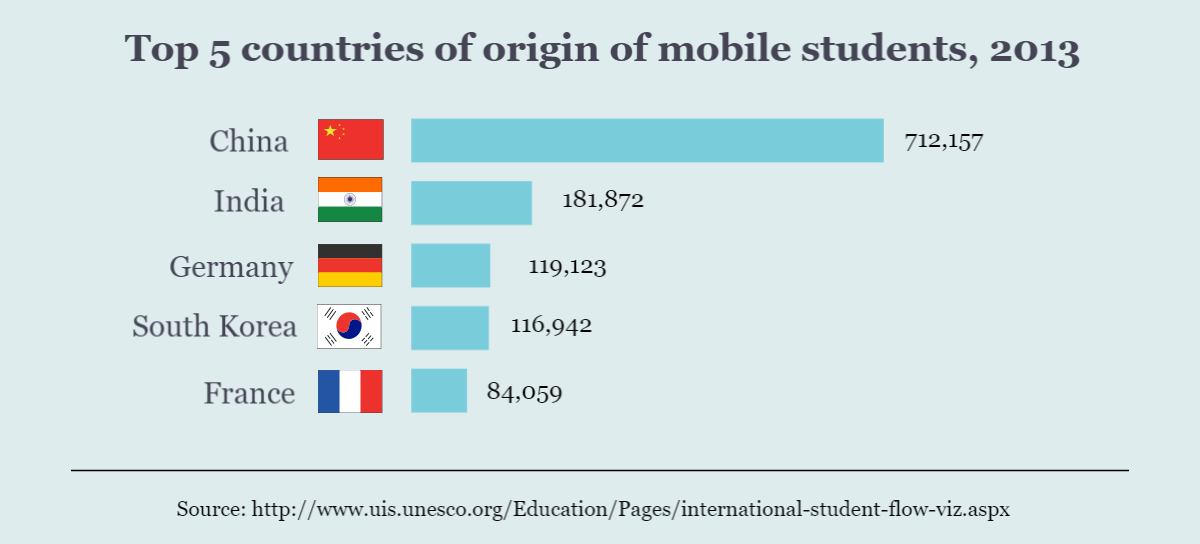Have you ever dreamed of going to school in a different country, far away from home? That’s what studying abroad is all about! It’s like going on a big adventure where you get to learn new things, meet new friends, and see amazing places. Let’s dive into what it means to study abroad and why it’s such an exciting opportunity!
When you study abroad, you have the chance to explore international education, which means learning in a school outside of your own country. This opens up a world of global study opportunities for you to discover new cultures, languages, and ways of thinking. It’s a fantastic way to broaden your horizons and gain a whole new perspective on the world.
Choosing the Right Overseas University

Choosing the right overseas university can significantly impact your academic journey and future career prospects. Beyond just academics, it shapes your overall experience of living abroad.
Here are some additional valuable considerations to help you make an informed decision:
- Accreditation and Reputation: Ensure that the university you choose is accredited and recognized internationally. A reputable institution not only provides quality education but also enhances your employability globally.
- Program Suitability: Look for universities that offer programs aligned with your academic and career goals. Consider the curriculum, faculty expertise, research opportunities, and industry connections relevant to your field of study.
- Location and Culture: Evaluate the location of the university in terms of safety, climate, cost of living, and cultural richness. Living in a culturally diverse environment can broaden your perspectives and enrich your personal growth.
- Language of Instruction: Consider the language of instruction at the university. While many institutions offer courses in English, proficiency in the local language may be beneficial for daily life and future career opportunities in that region.
- Financial Considerations: Assess the overall cost of studying abroad, including tuition fees, accommodation, health insurance, and living expenses. Look for scholarships, grants, or financial aid options offered by the university or external sources to alleviate financial burdens.
- Student Support Services: Research the availability of support services for international students, such as orientation programs, academic advising, counseling, and career development resources. A supportive environment can ease your transition and contribute to your academic success.
- Employment Opportunities: Explore the university’s career services and job placement assistance. Consider the employment prospects in the host country and whether there are opportunities for internships, part-time work, or post-graduation employment in your field.
- Student Life and Extracurricular Activities: Consider the campus facilities, clubs, societies, and recreational activities available for students. Engaging in extracurricular activities not only enhances your social life but also contributes to your personal and professional development.
- Alumni Network: Investigate the university’s alumni network and their achievements in various industries. A strong alumni network can provide valuable connections, mentorship opportunities, and insights into career pathways.
- Visa Regulations and Immigration Policies: Familiarize yourself with the visa requirements and immigration policies of the host country. Ensure that you meet the necessary criteria for obtaining a student visa and understand any restrictions or conditions associated with studying abroad.
- Healthcare Facilities and Insurance: Consider the accessibility of healthcare services on campus or in the surrounding area. Verify whether you need to purchase health insurance and understand the coverage provided for medical expenses and emergencies.
- Feedback and Reviews: Seek feedback from current or former international students about their experiences at the university. Online forums, social media groups, and alumni associations can be valuable sources of information to gain insights and perspectives.
What Makes a Good Overseas University?
Choosing the best university abroad involves more than just picking a popular school. You should think about the types of classes they offer, the campus environment, and the support services available to international students. Consider what kind of learning experience you want and how the university’s offerings align with your goals.
Getting Help from Academic Advisors
Foreign academic advisors are experts who can guide you through the process of selecting a university overseas. They can provide valuable information about different institutions, help you understand admission requirements, and assist in navigating the application process. Don’t hesitate to reach out to these professionals for advice and support as you make this important decision.
The Benefits of International Education
Let’s talk about all the cool things you can learn and do when you study in a new country. Studying abroad is like going on a big adventure where you get to explore different cultures, make new friends from all over the world, and learn things you might never have known otherwise.

Learning New Cultures
When you study abroad, you have the chance to see how people in other places live and what they believe in. You can try new foods, learn traditional dances, and celebrate holidays that might be different from the ones you’re used to. It’s like stepping into a whole new world full of exciting experiences!
Making International Friends
One of the best parts of studying abroad is getting to meet kids from all over the world. You’ll make friends with people who have different backgrounds, speak different languages, and have unique stories to share. These friendships can last a lifetime and open your eyes to new perspectives and ways of thinking.
How to Join a Student Exchange Program
We will check out how you can be a part of a program that lets you swap places with a student from another country.
Steps to Apply for an Exchange Program
Joining a student exchange program is an exciting opportunity to experience life in a different country while continuing your education. Here are the steps you need to follow to apply for an exchange program:
1. Research Programs: Start by researching different student exchange programs to find one that aligns with your interests and academic goals. Look for programs that offer courses you are interested in and provide support for international students.
2. Meet Eligibility Requirements: Each program may have specific eligibility requirements, such as a minimum GPA, language proficiency, or specific academic background. Make sure you meet all the criteria before applying.
3. Complete Application: Once you have chosen a program, complete the application form accurately and submit all required documents, such as transcripts, letters of recommendation, and a personal statement.
4. Attend Interviews: Some exchange programs may require you to attend an interview as part of the selection process. Be prepared to discuss your interest in studying abroad and how you can contribute to the program.
5. Receive Acceptance: If you are accepted into the program, congratulations! You will receive information on next steps, such as visa applications, housing arrangements, and pre-departure orientations.
What to Expect When You’re Exchanging
Once you have been accepted into a student exchange program, it’s time to prepare for your adventure abroad. Here’s what you can expect when you’re exchanging:
1. Cultural Immersion: You will have the opportunity to immerse yourself in a new culture, language, and way of life. Be open to new experiences and embrace the differences you encounter.
2. Academic Challenges: Studying in a different country may present academic challenges, such as adjusting to a new curriculum or teaching style. Stay organized, communicate with your professors, and seek support when needed.
3. Making Friends: One of the best parts of a student exchange program is the chance to make friends from around the world. Be open, friendly, and willing to learn from your peers.
4. Personal Growth: Living and studying abroad can be a transformative experience that helps you grow personally and academically. Embrace the challenges and opportunities that come your way.
Preparing for Your Adventure
Before you head off to study in another country, you’ll need to pack your suitcase with all the essentials. Make sure to bring clothes suitable for the weather in your new home, as well as any personal items that will make you feel comfortable. Don’t forget important documents like your passport and visa, and any medications you might need.

Learning the Language
If the country you’re going to speaks a different language, it’s a good idea to start learning some basic phrases before you arrive. You can use language learning apps, watch movies or TV shows in that language, or even find a language exchange partner to practice with. Learning the local language will not only help you communicate better but also show respect for the culture of your host country.
The World is Your Classroom
As we come to the end of our journey exploring the wonders of studying abroad, it’s important to remember that the world is your classroom. By stepping out of your comfort zone and immersing yourself in a new culture, you open yourself up to a world of learning opportunities that go beyond textbooks and lectures.
Embracing International Education
International education is not just about gaining knowledge in a different setting; it’s about broadening your horizons, challenging your perspectives, and developing a deeper understanding of the world around you. When you study abroad, you have the chance to learn from people with diverse backgrounds and experiences, enriching your own education in ways you never thought possible.
Global Connections
Studying in a different country allows you to make connections with students from all over the globe. These friendships can last a lifetime and provide you with a network of support and understanding that transcends borders. By building these international relationships, you are creating a more interconnected and compassionate world.
Final Thoughts
So, as you consider the exciting prospect of studying abroad, remember that the world is your classroom. Embrace the challenges, celebrate the differences, and soak up every moment of this incredible experience. International education is not just about academics; it’s about personal growth, cultural awareness, and a truly transformative journey that will stay with you for the rest of your life.
FAQs
Do I need to speak another language to study abroad?
Not always, but we’ll talk about why it can be helpful. When you study abroad in a country where they speak a different language, knowing some of that language can make things easier for you. You’ll be able to communicate with people around you, understand your classes better, and even make new friends more easily. But don’t worry if you don’t speak the language yet – many universities offer language classes to help you learn while you’re there!
Can I study abroad with my friends?
Sometimes you can, and we’ll explain how that might work. There are programs that allow you and your friends to study abroad together, but it depends on the specific program and the schools involved. Even if you can’t go with your friends, studying abroad is a fantastic opportunity to meet new people and make friends from all over the world. Who knows, you might even find a new best friend in a different country!



